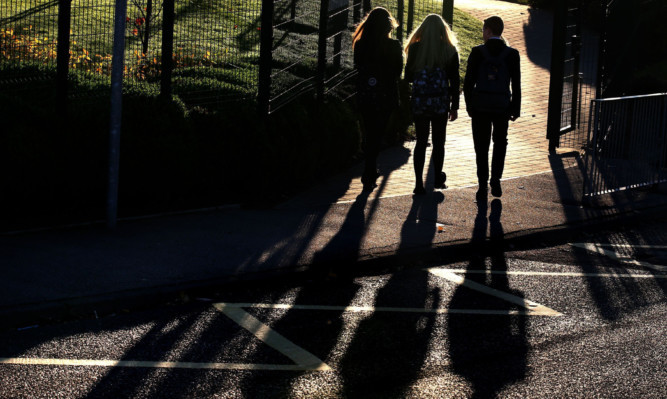The outpouring of shock and grief from the North East of Scotland over the last week is as understandable as it is significant.
A young lad should not go to school and end up dead. It just should not happen. Such incidents are thankfully so rare in Scottish schools that we can remember every tragedy. Thus the pain and stunned disbelief which has accompanied the death of Bailey Gwynne.
We do not yet know the full circumstances of the tragedy at Cults Academy, save that a 16-year-old has been charged with murder and possession of a bladed weapon, and the law will now take its course.
However, there is one thing we can and should say about knife crime across Scotland. That is if youngsters carry knives then it is inevitable that some of these weapons will be used with tragic consequences.
Therefore it follows that to keep our young people safe then we have to prevent knives being carried. Full stop.
A few years ago we had reached a critical point in Scottish society. There had been a succession of tragedies in knife attacks and the grief and the wreckage of lives had scarred many communities across the land.
However, the solution was in our own hands and key changes in policy have had a real impact. The policy change was composed of three things. Firstly the innovative “no knives better lives” campaign has done great work in informing young people of the damage that can result from carrying knives and helping to break the gang culture which afflicted many areas.
Secondly sentencing was changed to reflect the severity of the potential consequences of the crime. The average length of custodial sentences for even carrying an offensive weapon has more than doubled. That applies to all age groups.
However, the third approach was the most crucial of all and the most controversial. The extensive “stop and search” policy of the Scottish police made it almost certain that if a young person carried a knife, particularly over a weekend, then they would be caught.
As a result knife carrying declined rapidly.
Knife crime in Scotland is now running at a fraction of its previous level. There has been a fall of no less than 62% in crimes of handling an offensive weapon since 2006.
However, there have been voices loud and persistent and repeated ad nauseam in the media who have added “stop and search” to their chorus of criticisms of Police Scotland. As a result the number of searches has been reduced substantially in the last two years.
It may be of course that the extensive “stop and search” policy should be better grounded in law. But the attack on the policy has been on the basis of civil liberties and the claim that essential freedoms are at risk if young people are regularly stopped by the police.
I do not agree. Extensive stop and search is one of the reasons that knife crime has been reduced in Scotland. We must not move away from it any further without really understanding the likely consequences of what we are doing.
There is no greater loss of civil liberty than the loss of a life. There is no greater tragedy than the needless loss of a young life. There is no greater freedom than the right to live.
And there is no greater shame than those who for puerile politicking have attacked a policy which has demonstrably worked in keeping many of our young people safe from harm.
